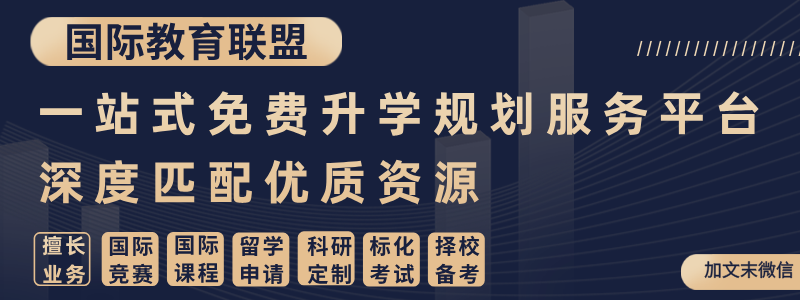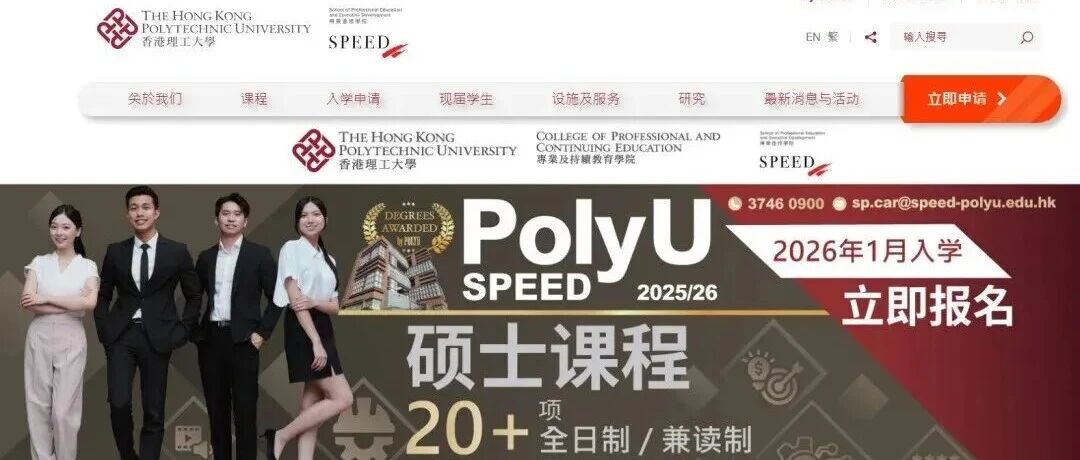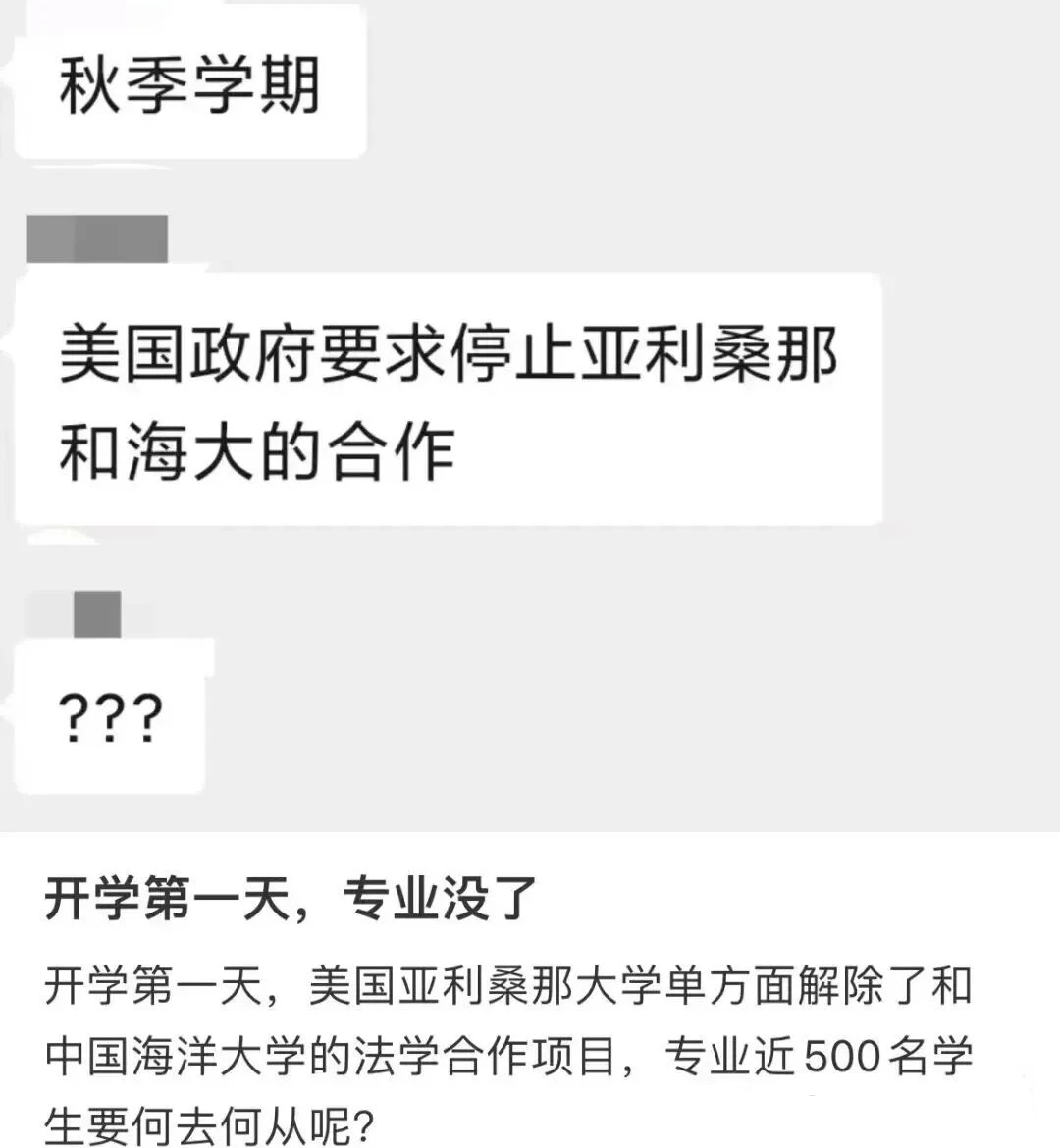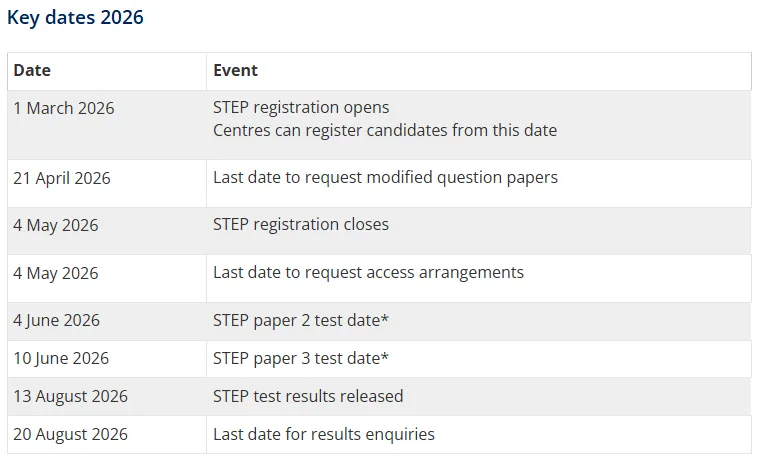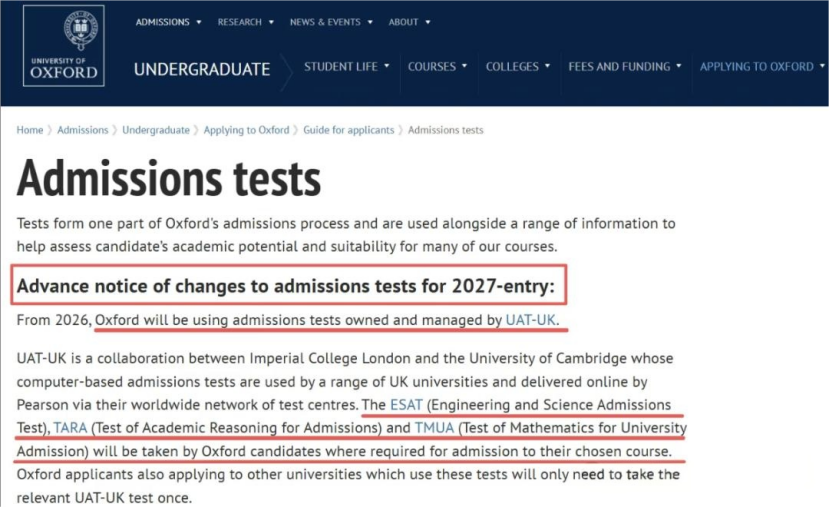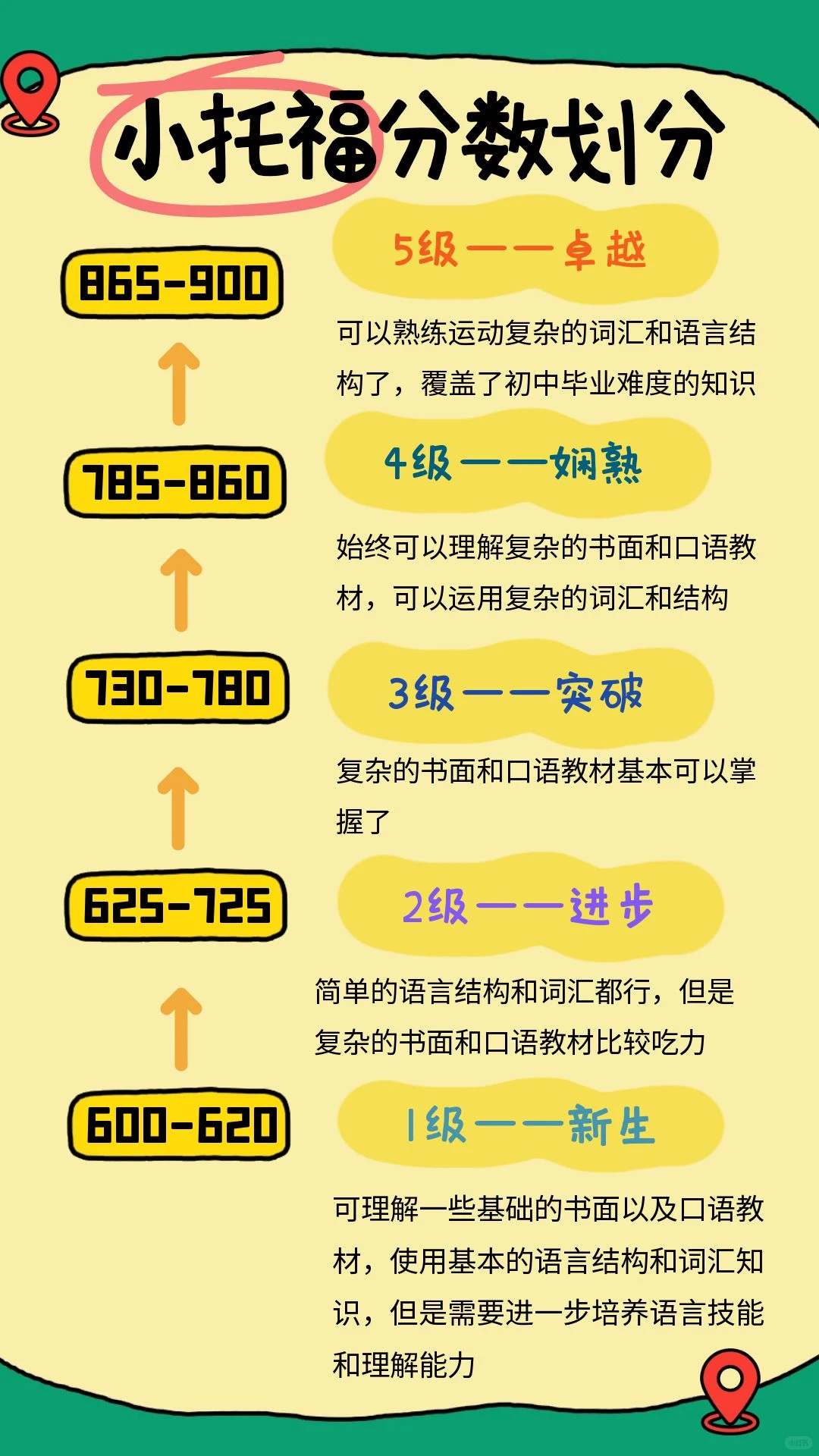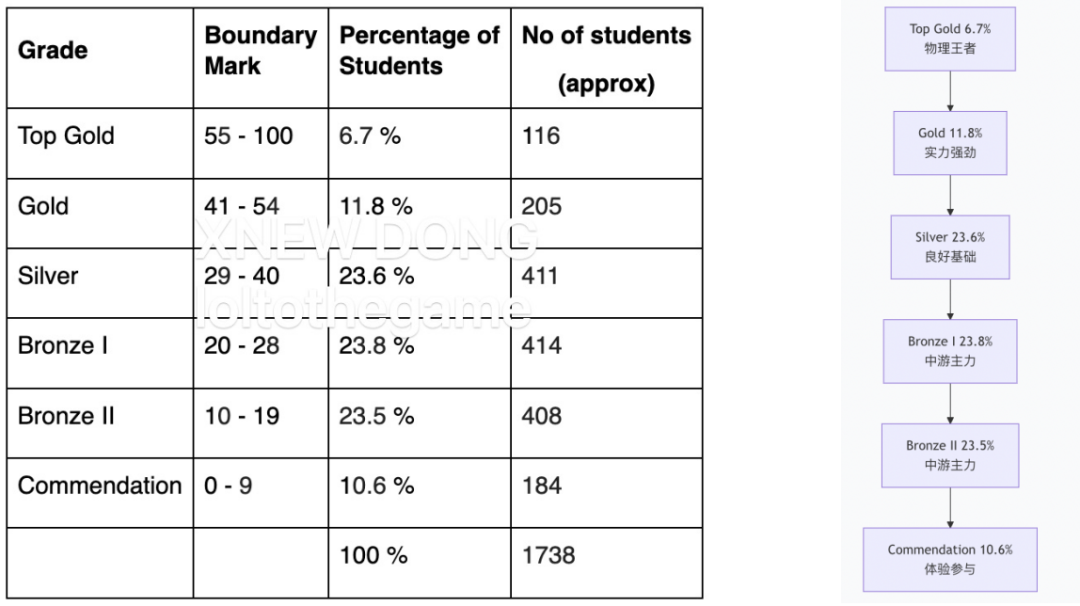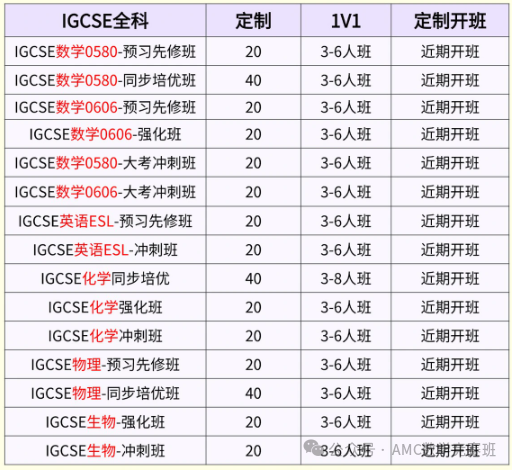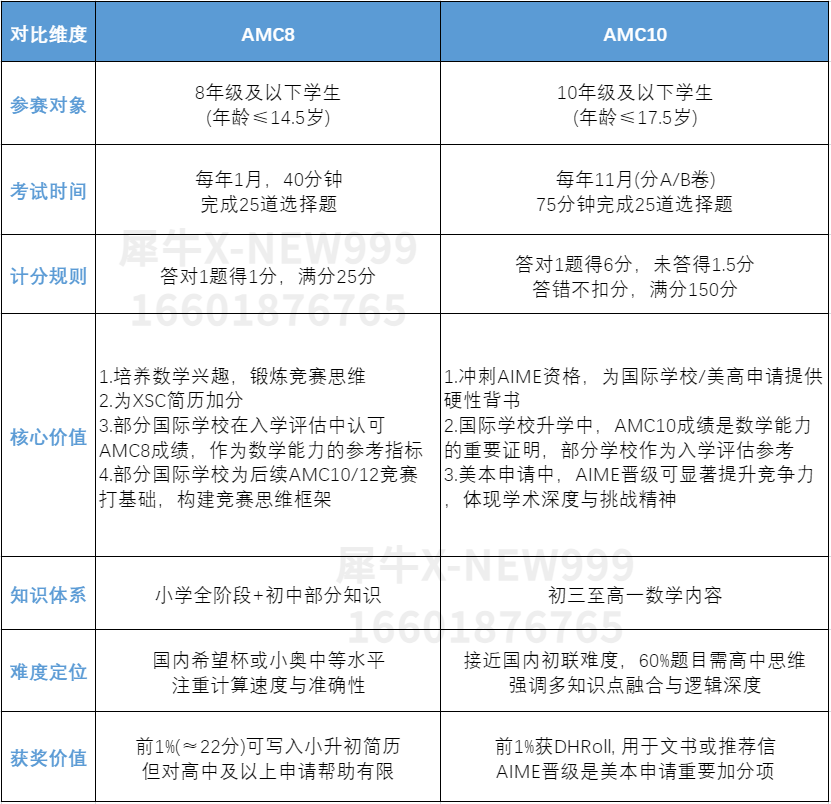十月是「收获」属性拉满的季节
在过去一个月的比赛中
大家是否满载而归成长满满呢?
不知不觉间,我们即将迈入2025的尾声
JWSD赛事也将从11月底开始
启用新的已备辩题
那么今天就为大家正式公布
Junior WSD秋季已备辩题 II
希望大家在接下来的一个月时间里充分准备
胸有成竹地应对后半程赛事~
Junior WSD 秋季已备辩题 II
MOTION 1
This House, as a School, Would Implement a Mandatory Life Skills Course (e.g. Taxes, Cooking, Basic Repairs) Instead of a Second Foreign Language.
MOTION 2
THW impose a significant tax on products that are designed to be non-repairable.
▋秋季已备辩题 II适用比赛
线上赛III 11月29日-30日
宁波线下城市赛 12月6日-7日
广州线下城市赛 12月6日-7日
线上赛IV 12月20日-21日
深圳线下城市赛 12月27日-28日
上海线下城市赛 12月27日-28日
线上赛V 1月3日-4日
冬季线上邀请赛 2月17日-18日
▋赛程及辩题发布计划
1. 2025秋季常规赛循环赛阶段共设置 4 轮比赛,比赛将采用2 轮已备辩题+2 轮即兴辩题形式展开。
2.Junior WSD已备辩题全年发布计划如下:
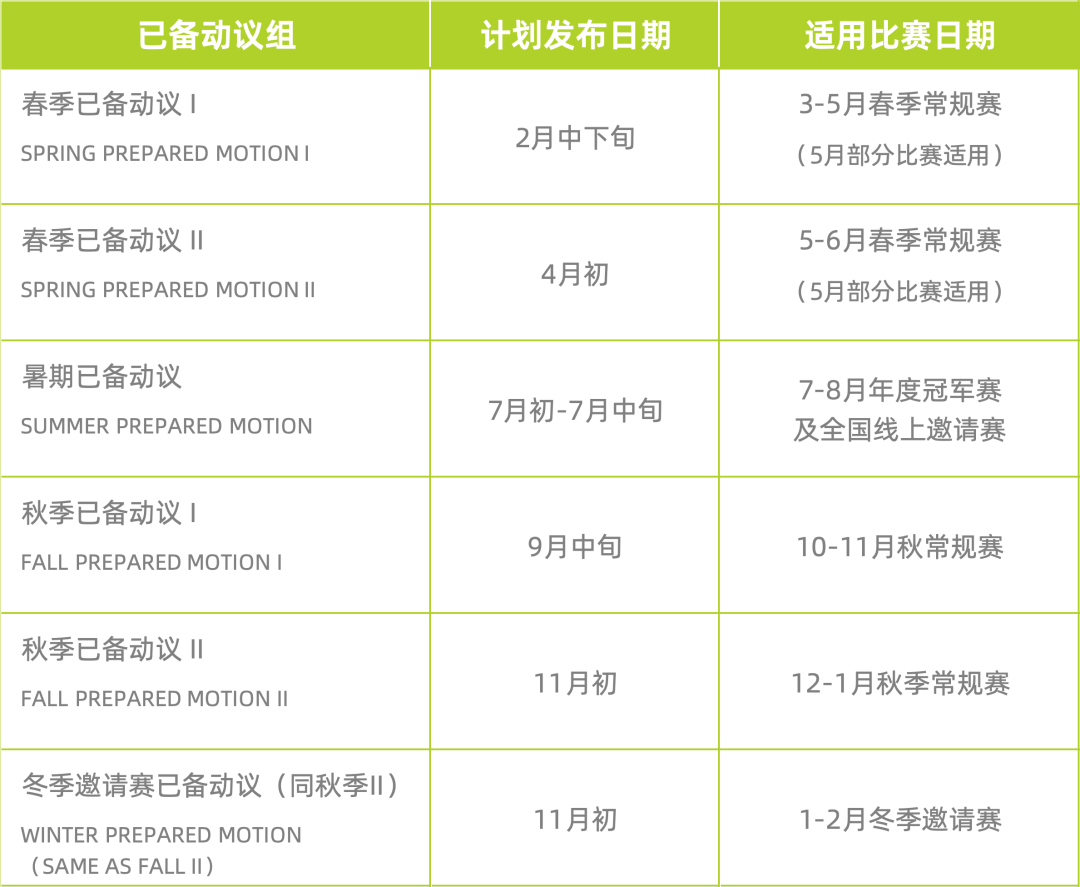
Young Mind, Fresh Ideas 2025 Junior WSD 秋季常规赛 报名火热进行中!
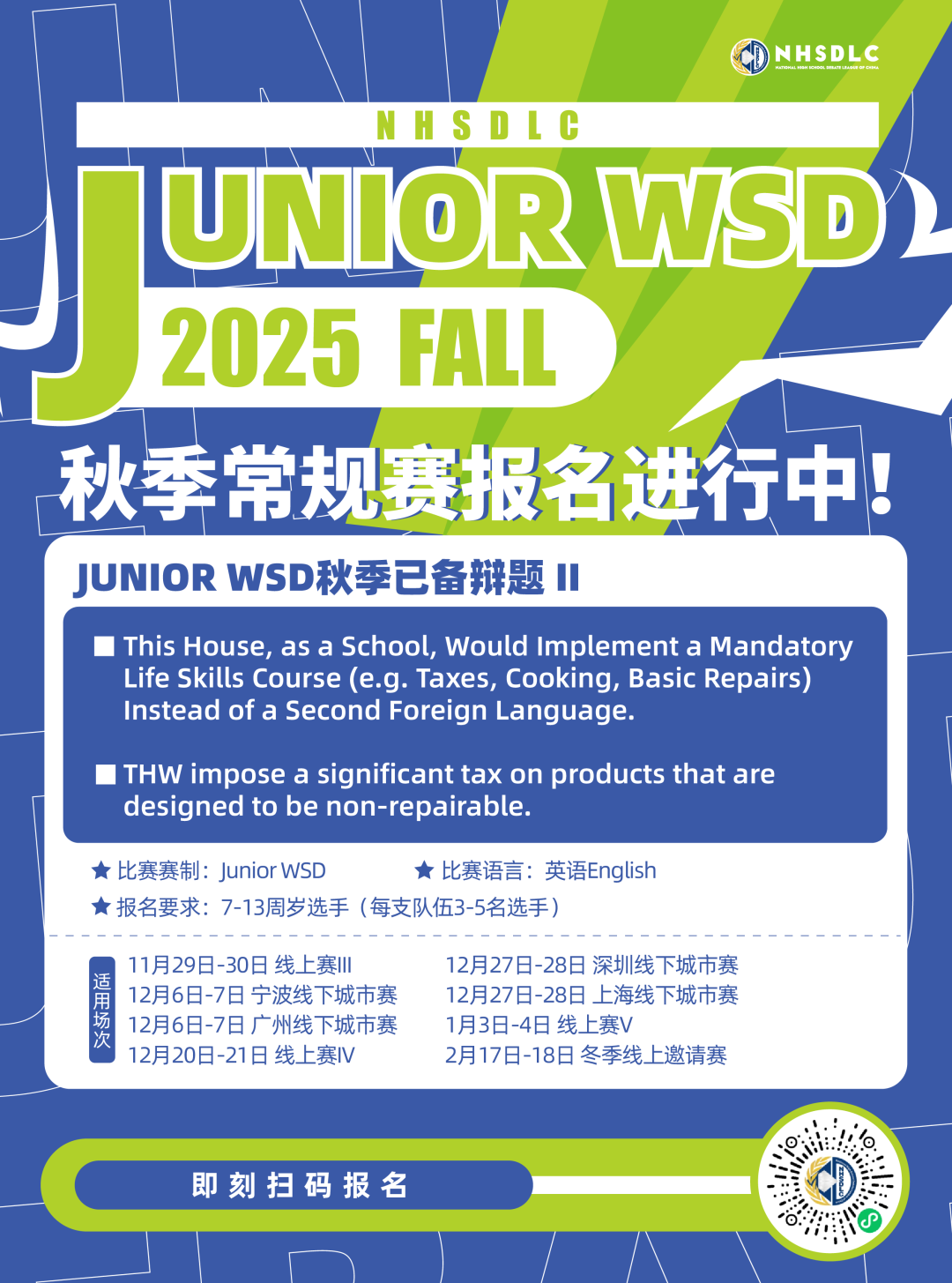
本次我们将在已备辩题公布的同时
同步发布辩题解析
期待能够给大家带来一些启发
更好地进行备赛~
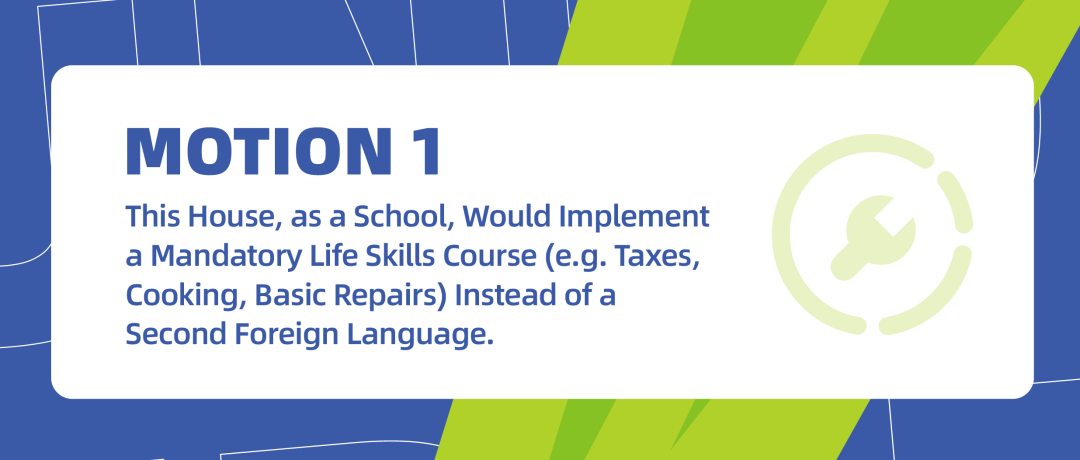
Proposition 正方
For the proposition, teams can argue that a mandatory life skills course gives students more practical and relevant knowledge for real world scenarios and even independence. Many students graduate knowing how to conjugate verbs in another language but cannot manage personal finances, prepare a meal, or fix basic problems in their homes.
They can argue that such a class would close the gap between academic knowledge and real-life application. Students learn to handle adult responsibilities early, that means less stress or dependence on others in the future. In countries Where young adults are hit with significant financial problems, such skills result in improved decision-making, much less debts, and more independence.
Teams could also emphasize that most students rarely use their second foreign language after school. But on the other hand, life skills like budgeting, taxes, or first aid are universally needed. Therefore, the school curriculum should prioritize utility over tradition. Finally, prop sides can argue that a life skills course would create more equal opportunity, students from less privileged backgrounds often lack access to parents or mentors who can teach these things at home.
Opposition 反方
On the Opposition side, teams should argue that the removal of the second foreign language does more harm than good. Learning another language builds more than just vocabulary, it teaches communication, comprehension, empathy, and cross-cultural understanding. As the world becomes more and more globalized, bilingualism improves job opportunities and strengthens international cooperation.
Teams can also show that learning a new language boosts cognitive development, students improve memory, problem-solving, and creativity. Replacing this with life skills might seem practical in the short term but reduces the long-term intellectual and cultural benefits that multilingual education brings.
moreover, the Opposition may argue that schools already have ways to teach life skills indirectly through clubs, projects, and extracurricular activities. Forcing it as a compulsory class will overpack the curriculum and detract time from the other fundamental subjects. They can also claim that the objective should not be to replace one valuable subject with another, but to integrate life skills gradually within existing programs instead of sacrificing language learning altogether.

Proposition 正方
For the Proposition, teams can contend that taxing irreparable items promotes environmental sustainability and also reduces waste. Most modern products, particularly electronics, are intentionally designed to be hard or impossible to fix, compelling consumers to purchase new ones constantly. That "throwaway culture" results in increased pollution, depletion of natural resources, and clogging landfills at alarming levels.
Teams can show that if these products are taxed, it would push businesses to design with the aim of durability and reparability. When the repairable products are cheaper and non-repairable products more expensive, both firms and consumers will have a subconscious tendency to shift towards sustainable consumption. And this, in a way, over the years, can help instigate a circular economy, one where products are recycled, repaired, and reused instead of being constantly replaced.
Prop teams can also argue that this policy is fair even from a moral standpoint. Corporations profit from planned obsolescence while consumers foot the bill for constant replacement. A tax acts to equalize by making corporations pay for the social and environmental harm their designs cause. Finally, this tax can fund recycling programs, repair education, or environmentally friendly efforts, creating a long-term public good for all of society.
Opposition 反方
For the opposition, teams should argue that denying welfare to illegal immigrants is immoral and counterproductive. To withhold medical treatment, housing, or food stamps only increases human misery, resulting in public health crises and increased social unrest. Most illegal aliens already contribute economically to the country through labor and taxes (e.g. sales tax), so denying them welfare is unjust.
Opposition sides can also contend that not having welfare has indirect costs to governments, e.g. higher emergency healthcare costs, increased crime rates due to desperation, and lower productivity from untreated illnesses. Providing basic support also strengthens integration, public safety, and labor stability. Instead of punishing the vulnerable populations, the governments can focus on immigration reform and pathways to legal status, preserving humane treatment while maintaining social order at the same time.
无论你想要突破瓶颈
在后续的赛事中取得更加亮眼的成绩
还是作为新手小试牛刀
想要在比赛中学习知识、感受辩论的乐趣
夯实基础+进阶突破都是最佳的成长路径
JWSD辩论大师课
采用了阶梯式的教学架构与针对性训练模块
不同认知阶段的学生都可以
根据自身的能力发展需求选择课程
在经验丰富的教练的带领下
完成构建理论认知到学会实战应用的进阶!

Young Mind, Fresh Ideas 2025 Junior WSD 秋季常规赛报名火热进行中!


